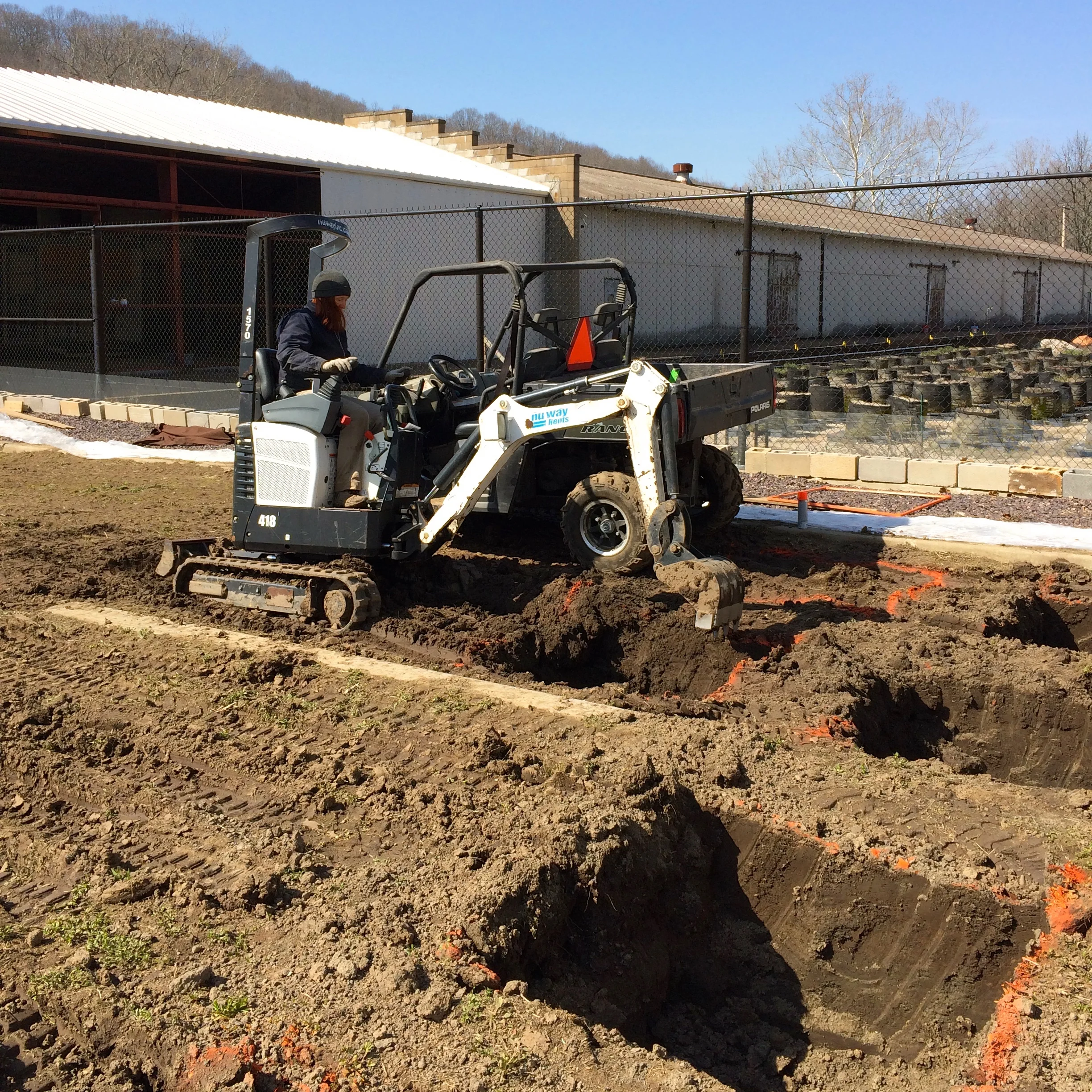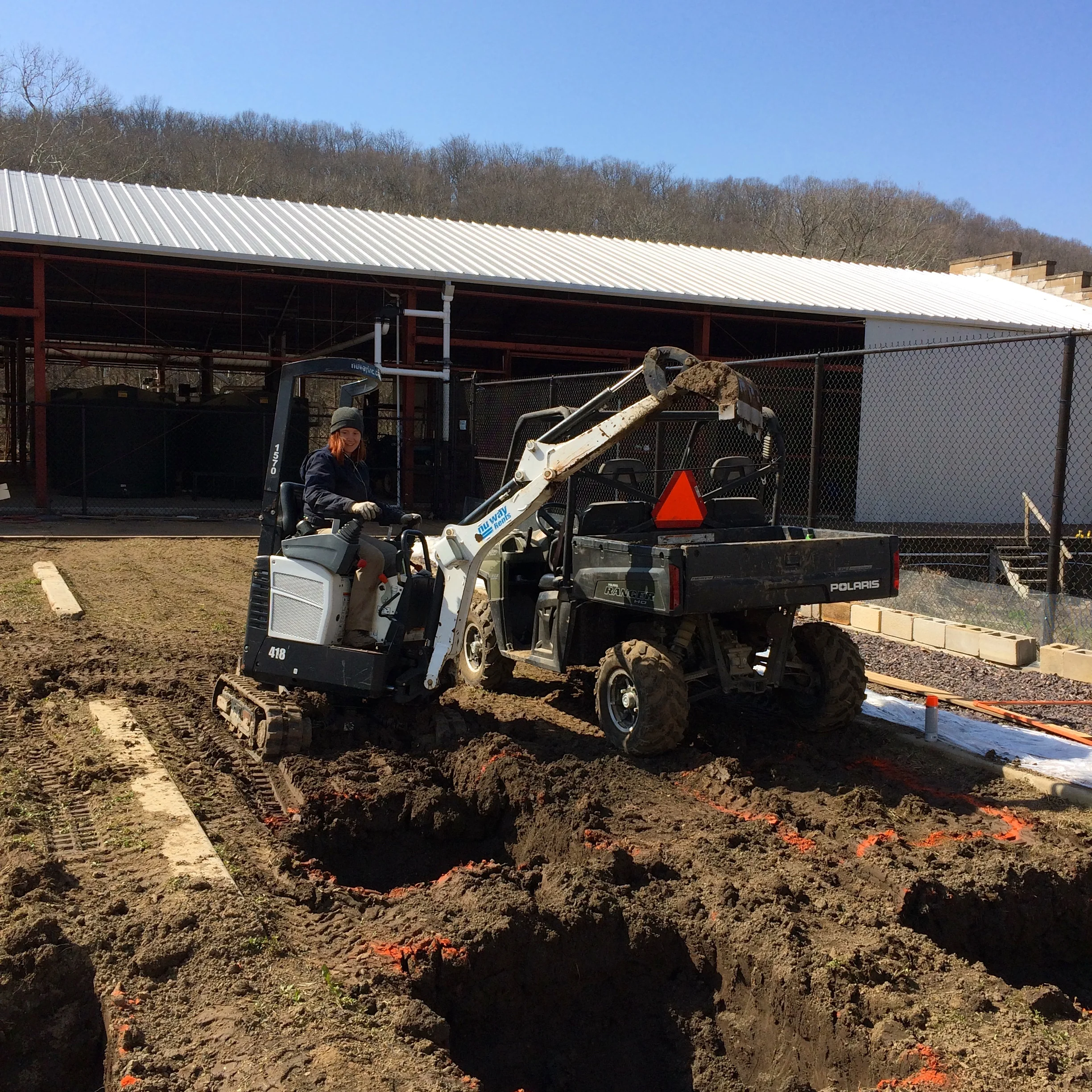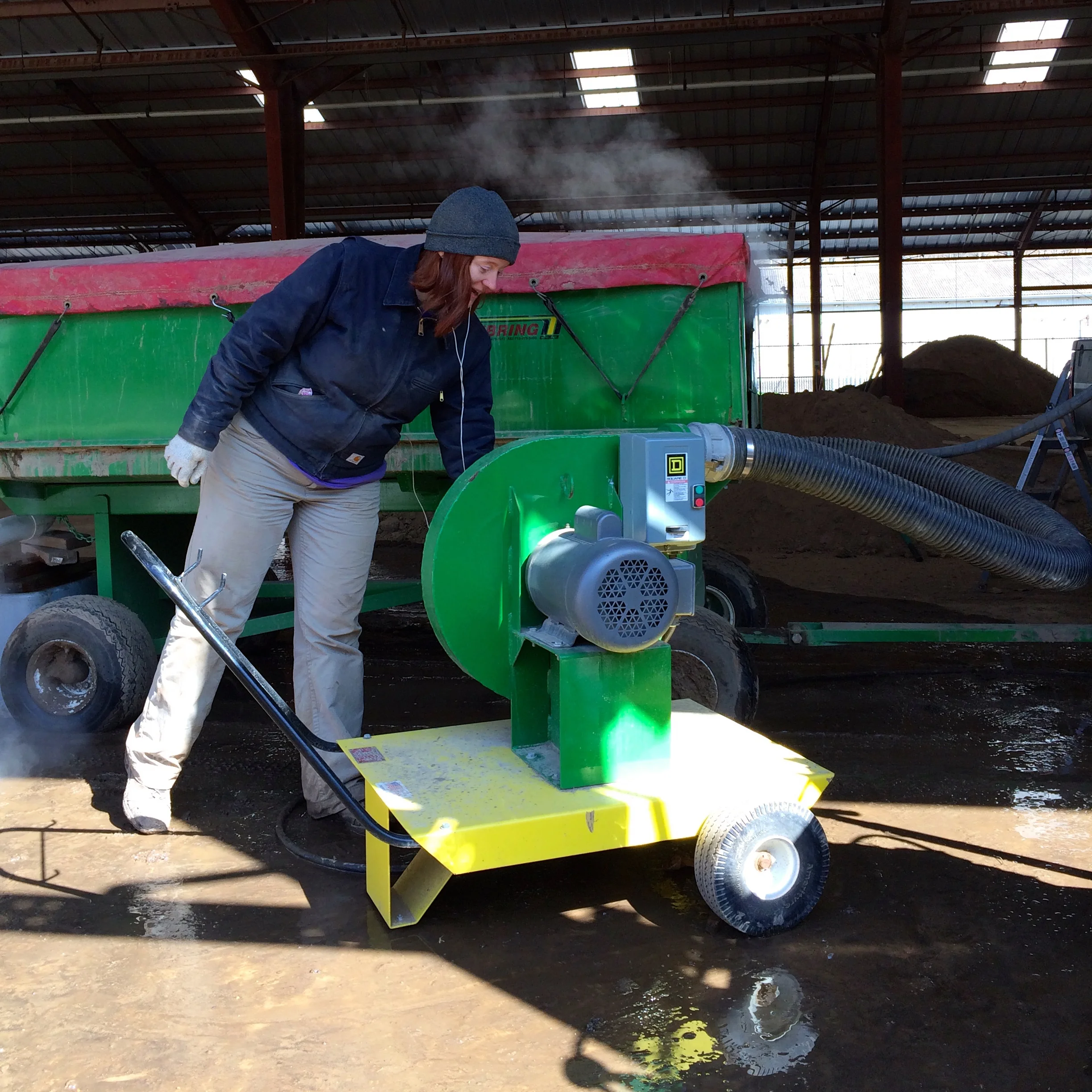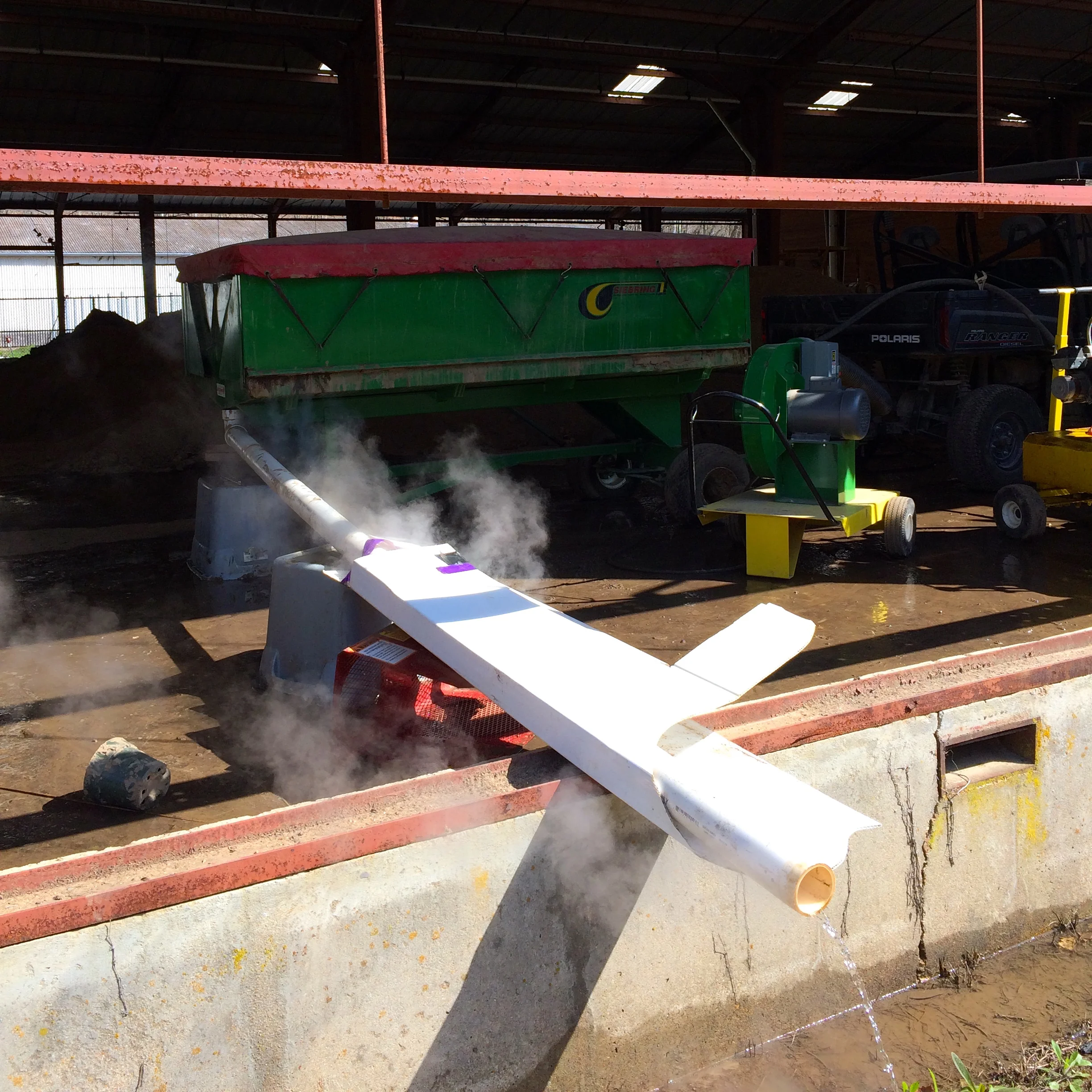Apr 10, 2018
Rachel Becknell has been quite busy with some large machines as she sets up two bays of the research garden for her PhD dissertation project. Manipulating soil microbial communities at a large scale requires starting with a clean slate, meaning piles and piles of twice-sterilized soil. And that soil has to be moved into a common garden site and placed within a manageable experimental framework. For Rachel that means many days working with a backhoe and the soil steam sterilization equipment.
When finished with the project set up, Rachel will have established 88 1m x 1m prairie plant communities with four different underlying soil microbial communities. There will be control plots with sterile soil and three sets of plots inoculated with soil microbial communities from elsewhere - one from an old pasture, another from a restored prairie at Shaw Nature Reserve, and the last from Tucker Prairie, a prairie remnant in Callaway County, Missouri.
Rachel is a graduate student in the Evolution, Ecology & Population Biology program at WashU and a member of Assistant Professor of Biology Scott Mangan's research group. Tyson has provided a $2000 Graduate Research Award to support her work in the garden. She was also recently awarded the Webster Groves Nature Study Society Bo Koster Scholarship for Nature Study, providing her with $2000 towards DNA metabarcoding to rapidly assess the biodiversity of the soil microbial communities in her project. She hopes that her experiment at Tyson will provide better understanding of feedbacks between plant species within a community and can inform prairie restoration practices to result in higher levels of biodiversity.
Digging perfectly spaced squares for experimental communities of prairie plants under differing soil microbe conditions
Making sure the steam sterilizer is running properly
Hot water run off from the soil sterilization process




